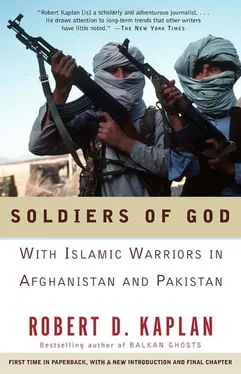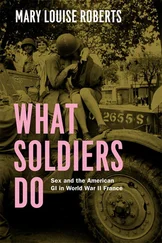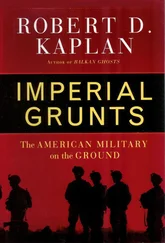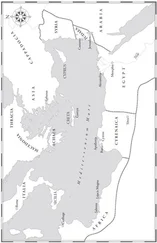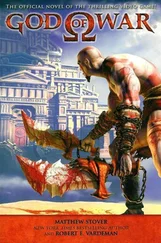Objectivity didn’t help you much in Peshawar, and there was a reason for this. Arranging a trip over the border was not always easy, and getting inside on short notice, if an editor in America or Europe requested it, was often exceedingly difficult. Not all of the seven main resistance parties were actively engaged in the fighting, and the most important groups were selective about whom they took in. The mujahidin sized you up. A big expense account and a business card from a world-class newspaper meant nothing to them. They had only two criteria: your physical and mental ability to cope in a war zone and your degree of sympathy for their cause. You had to be trusted. Getting inside all the time, whenever you wanted — which was what the resident stringers were paid to be able to do — required a close personal relationship with a leading figure in a guerrilla group. Since each group was suspicious of every other group, and since everyone in Peshawar knew everyone else, having a close relationship with one resistance organization often precluded a relationship with the others. The result was that most every resident journalist was identified with a particular faction, and the enmities dividing the guerrilla movement were mirrored in the foreign press corps. The situation in the aid community was similar, as relief projects in Afghanistan or the refugee camps in Pakistan depended on cooperation from one or another mujahidin organization. The seating arrangements around the bar at the American Club often told a visitor who was aligned with whom.
Generally, most of the journalists and aid workers in Peshawar were split into two principal factions, with allegiance to the two most militarily powerful guerrilla groups, which in turn reflected the major ethnic division within Afghanistan: that between Pathans and Tajiks. Never mind that because both Pathans and Tajiks were religious Sunni Moslems and operated in different areas of Afghanistan — each isolated from the other — they were rarely in serious conflict during the Soviet phase of the war. Never mind that the leading Pa-than commanders tried not to criticize their Tajik allies in the presence of outsiders and that Tajik commanders avoided criticizing Pathans. Each group’s foreign supporters observed no such truce. In the dining room or bar at the American Club, where everyone intimately familiar with the war talked in code — using first names and abstruse abbreviations for mujahidin commanders and their parties — a person was quickly identified with one ethnic faction or the other. Subtle hints alone were required, though sometimes they weren’t so subtle. One night at dinner, an aid worker said, “Don’t ever trust a greasy Tajik. I just hate Tajiks.”
No Pathan would ever say a thing like that. Afghanistan was a forgotten war, but among the foreigners risking their lives for the sake of the mujahidin, the conflicts were more noticeable than the camaraderie. In the oppressive, glass-house atmosphere of the frontier town’s foreign community, where heat, filth, disease, loneliness, and the constant tedium of dealing with the “brain-dead Punjabis” made tempers flare, supporting the mujahidin cause wasn’t enough for many people. You were trusted only if you supported the same faction as your colleague did.
The Tajiks and the Pathans were very different from one another, and so were the foreigners who supported them. The Pathans were by far the more numerous and important group, around which much of the Afghan drama — and my own experiences in particular — revolved. But the Tajiks played a role far out of proportion to their numbers, and many a Western writer was absolutely committed to their superiority over the Pathans as fighters.
The Tajiks, who accounted for roughly a quarter of Afghanistan’s prewar population, are the largest minority in the Pathan-dominated country. They are concentrated in northeast Afghanistan and speak Dari, a provincial form of Farsi spoken in the old Persian court. The Tajiks are a typical upwardly mobile minority, who flocked to Kabul in order to become educated and to fill administrative jobs in government and business. Louis Dupree, the foremost specialist on Afghanistan, compares the Tajiks to the Jews and Armenians in their desire for self-improvement. Though twice as many people in Afghanistan speak Pukhtu, the influence to Tajiks in the capital has helped make Dari the lingua franca of the country. In addition to education, the Tajiks have one other advantage over the Pathans: they are not riven by tribalism, but instead are identified with the particular valley in which they live. Of all these valleys, the most important is the Panjshir, a word that in Dari means “five lions.”
The Panjshir is a seventy-mile-long strategic corridor in the heart of the Hindu Kush mountains, which every army that has ever invaded Afghanistan from the north has had to cross. The only main entrance to the Panjshir is at its southern end, about sixty-five miles north of Kabul. But there are numerous side valleys, cutting between mountains that soar up to nineteen thousand feet, into which guerrillas can easily escape an invading force. The Panjshir is excellent guerrilla country, and it produced a charismatic mujahidin leader, Ahmad Shah Massoud.
Massoud, who was born around 1950, studied engineering in Kabul and speaks fluent French. The absence of tribalism among Tajiks and their penchant for Western-style organization allowed him, early in the war, to mobilize 3,000 mujahidin regulars along with pools of several thousand part-time partisans. By the end of the 1980s, that combined force would reach an estimated 50,000, the largest single guerrilla army in Afghanistan.
Massoud set up military cadet schools, mujahidin courts, and a tax collection system. The Soviets threw everything they could against him: mines, tanks, and heavy artillery. Carpet bombing and hideous reprisals against civilians were all too frequent; on one occasion, the Soviets lined up six hundred people and crushed them to death with tanks. Each time, however, Massoud and his men, and as many civilians as they could alert in advance, disappeared into the side valleys, sniped at Soviet troops, and eventually drove them back out. This happened seven times in the first half of the 1980s. It was an impressive show, and every journalist and relief worker who was also to penetrate the Panjshir came back to Peshawar singing the praises of Massoud, whom they dubbed “the Lion of the Panjshir.”
The guerrilla leader first became known to the outside world through Dr. Laurence Laumonier, a strapping French woman with sparkling blue eyes and a steely resolve, who in July 1980 was the first relief worker to visit the Panjshir after the Soviet invasion the previous winter. Dr. Laumonier alerted French journalists to what was happening, and they filed into the valley to write stories about Massoud, who was able to communicate with them in their own language. Other journalists followed, almost all of them European.
Massoud had a hawk nose, sharp features, and a wiry physique. The adjectives most often applied to him were “wily” and “scrappy.” Journalists compared him to Che Guevara and Marshal Tito, and his mujahidin to Castro’s Cuban guerrillas. The fact that he represented an ethnic minority and was getting some military aid from the Chinese further increased his allure. Massoud’s peculiar characteristics made it easy for left-wing European journalists to support him against the Soviet Union. Because Massoud’s Tajik spokesmen in Peshawar were thoroughly Westernized — they spoke foreign languages and actually arrived on time for appointments — the European relief agencies, particularly the French and Swedish ones, carried out most of their humanitarian assistance projects in territory controlled by him. Massoud became Europe’s favorite Afghan; spurring his fame was Ken Follett’s best seller Lie Down with Lions, the hero of which he based on the Tajik commander.
Читать дальше
